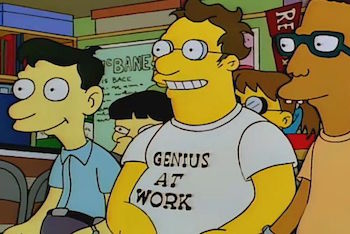I wouldn't call this lazy worldbuilding. It's like George R.R. Martin has said in a lot of interviews, some authors are 'architects' and some are 'gardeners', meaning some do a lot of outlining and worldbuilding beforehand and only then start to write, while some just start writing with some vague endpoint in mind and make most of it up as they go.
Both approaches are fine, with longrunning series the latter just means there will be some insonsistencies, because you can't go back and change the books that are already published. Honestly HP is a lot more consistent than some other series, like say The Dark Tower. With ASOIAF you really notice that GRRM didn't think of some central story elements until later.
Though I have to admit the Triwizard Tournament/Voldemort connection is pretty contrived. Hogwarts is dangerous enough as it is, Not-Mad-Eye could have just made up some excuse to get Harry into the Forbidden Forest and kidnapped him from there. Just say the spiders ate him.
Some of this bothers me, too, when looking back. A lot of the central plot derives from dividing children into different houses at the age of eleven by some weird psychological reasoning. (Like, hey kid, are you more brave or more smart? Please choose, this will determine who you're friends with during seven years of school.) One of the houses is literally proto-fascist... and still after defeating Voldemort nobody thinks about changing the shitty house system, no, actually all is fine with Slytherin because Snape did some good things.
And the whole plot with Hermione and the house elves is really, really cringy. "Actually, they like being slaves, don't bother changing it. Lol, she's so naive for trying to free them."
Rowling seems to have a really centrist viewpoint. A lot of YA fantasy series have similar issues, you have to defeat the big bad dark lord, but institutional change isn't on the table. That's understandable when we're talking about quasi-medieval worlds where e.g. abolishing monarchy wouldn't seem realistic, but HP takes place in the modern world, so some actual changes should be possible.
Speaking of politics, how exactly is the Minister for Magic appointed? Are there elections? Don't think it's ever mentioned in the books. When Cornelius Fudge resigned and Rufus Scrimgeour took over, who decided that?
Both approaches are fine, with longrunning series the latter just means there will be some insonsistencies, because you can't go back and change the books that are already published. Honestly HP is a lot more consistent than some other series, like say The Dark Tower. With ASOIAF you really notice that GRRM didn't think of some central story elements until later.
Though I have to admit the Triwizard Tournament/Voldemort connection is pretty contrived. Hogwarts is dangerous enough as it is, Not-Mad-Eye could have just made up some excuse to get Harry into the Forbidden Forest and kidnapped him from there. Just say the spiders ate him.
Generally, not to post that 4chan thing, but the whole thing around Harry seemingly obsessed with preserving the status quo except for a few token things around half-bloods is a problem for me. There is no care for most of the problems in the Wizarding world, almost all characters (except for Hermione in some circumstances, which are usually portrayed as her being a bit 'bleeding heart' OTT) have no interest in resolving these huge injustices (including literal slavery) - they just don't like Voldemort and his extreme facism. Harry's entire goal is to literally join the police to preserve the status quo.
I suppose all of this is less of a plot hole, and more a fundamental disagreement of values. It is just particularly stark that in a novel supposed to be about good vs evil, the ideals of a child in a fantastical world boil down to "better things aren't possible".
Some of this bothers me, too, when looking back. A lot of the central plot derives from dividing children into different houses at the age of eleven by some weird psychological reasoning. (Like, hey kid, are you more brave or more smart? Please choose, this will determine who you're friends with during seven years of school.) One of the houses is literally proto-fascist... and still after defeating Voldemort nobody thinks about changing the shitty house system, no, actually all is fine with Slytherin because Snape did some good things.
And the whole plot with Hermione and the house elves is really, really cringy. "Actually, they like being slaves, don't bother changing it. Lol, she's so naive for trying to free them."
Rowling seems to have a really centrist viewpoint. A lot of YA fantasy series have similar issues, you have to defeat the big bad dark lord, but institutional change isn't on the table. That's understandable when we're talking about quasi-medieval worlds where e.g. abolishing monarchy wouldn't seem realistic, but HP takes place in the modern world, so some actual changes should be possible.
Speaking of politics, how exactly is the Minister for Magic appointed? Are there elections? Don't think it's ever mentioned in the books. When Cornelius Fudge resigned and Rufus Scrimgeour took over, who decided that?


